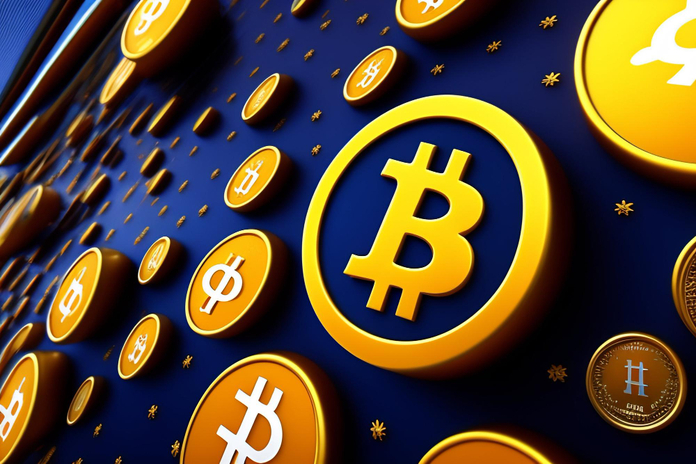After 14 months of maintaining federal interest rates in the range of 5.25% to 5.5%, the Federal Reserve is set to announce a reduction in rates. For the cryptocurrency market, Fed rate cuts could signal a positive shift. The decision, expected during the Federal Open Market Committee meeting, is anticipated to be significant, with markets assigning a 65% chance of a 0.5% cut and a 35% chance of a 0.25% reduction.
The Positive Outlook for Crypto
Higher interest rates typically encourage investors to place their funds in risk-free Treasury bonds, seeking attractive yields. In contrast, a reduction in rates usually nudges investors towards riskier assets like technology stocks and cryptocurrencies, creating a more favorable environment for these investments.
Bitcoin’s Resilience in an Environment of Fed Rate Cuts
Bitcoin (BTC) is poised to benefit substantially from the impending Fed rate cuts for several reasons. Firstly, Bitcoin has shown a strong positive correlation with global liquidity since its inception. “Bitcoin’s price has shown a strong positive correlation with global liquidity,” notes Brian Rudick, director of research at crypto trading firm GSR. This relationship suggests that as liquidity increases due to rate cuts, Bitcoin’s value is likely to rise.
Moreover, Bitcoin’s fixed supply enhances its appeal as a hedge against inflation, akin to gold. With forecasts indicating a 60% chance that rates could decrease by at least 1.25% by December, many experts believe inflation could return with a vengeance. Vincent Deluard, director of global macro for financial services company StoneX, points out that “the underlying conditions have not changed,” implying that inflationary shocks are imminent.
Quinn Thompson, founder of crypto hedge fund Lekker Capital, adds, “Government spending and inflation will likely bolster both Bitcoin and gold.” He emphasizes that inflation will become problematic again, which may prompt the Fed to halt rate cuts eventually. This environment could enhance Bitcoin’s status as a safe-haven asset.
Ethereum and Solana: Mixed Predictions
While Bitcoin’s trajectory is clearer, the outlook for other cryptocurrencies like Ethereum (ETH) and Solana (SOL) is more nuanced. As the leading cryptocurrency, Bitcoin often dictates the market’s direction. When Bitcoin rises, other cryptocurrencies typically follow suit; when Bitcoin falls, they often plunge.
Rudick suggests that “barring token-specific drivers, the majors will likely move in line with their beta, with Solana moving the most, followed by Ethereum, and then Bitcoin.” This implies that both Ethereum and Solana could see gains if Bitcoin maintains an upward trend.
However, Thompson highlights a crucial difference between these cryptocurrencies: Bitcoin and Ethereum have secured approval for US spot exchange-traded funds (ETFs), while Solana has not. The demand for Bitcoin ETFs has outpaced that for Ethereum, affecting capital inflows into the market. “The marginal buyer of crypto right now is an ETF buyer,” he states, emphasizing that ETF inflows have been negative for Ethereum and positive for Bitcoin.
Conclusion: A Cautious Optimism for the Crypto Market
In summary, the anticipated Fed rate cuts could catalyze a bullish environment for cryptocurrencies, particularly Bitcoin. With its established position as a leading asset and a hedge against inflation, Bitcoin is likely to see strong demand. This, in turn, could lift Ethereum and Solana, provided Bitcoin sustains its upward momentum.
While the landscape for cryptocurrency remains complex, especially for Ethereum and Solana without strong ETF backing, the overall sentiment is cautiously optimistic. As investors navigate this shifting market, monitoring Bitcoin’s performance will be essential for gauging the potential growth of Ethereum and Solana in the wake of the Fed’s decision.
Featured Image: Freepik




